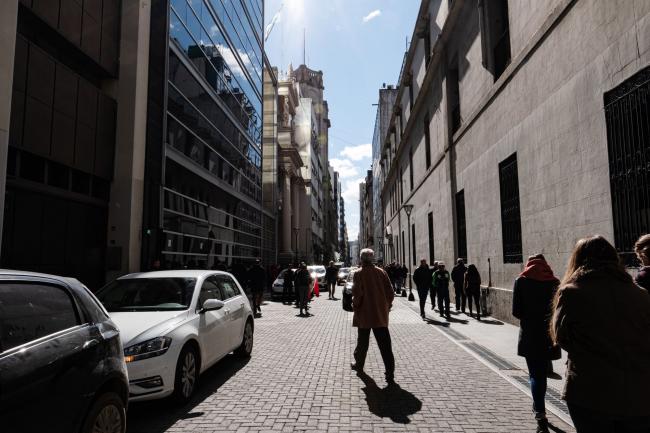(Bloomberg) -- BlackRock Inc (NYSE:BLK).’s wager on Argentine debt maturing 98 years from now suffered a blow this week as the notes sank to a record.
The century bonds, sold in 2017, tumbled 29% this week, even after gaining on Thursday and Friday. That’s a big loss for the largest reported holders, which include BlackRock, Royal Bank of Canada, Legg Mason Inc (NYSE:LM). and Northwestern Mutual Life Insurance Co., according to data compiled by Bloomberg.
A spokeswoman at BlackRock, the biggest reported holder, declined to comment. Representatives at RBC, Legg Mason and Northwestern Mutual didn’t respond to requests for comment.
One silver lining, naturally, is that investors have almost a century for prices to recover. Yet a lot can happen before then. Concern that opposition candidate Alberto Fernandez could return populist policies to Argentina led to a surge in the cost to protect the bonds against losses, now implying an 80% probability of default in the next five years, data compiled by Bloomberg show.
“Lending money to Argentina for 100 years at 7% gets you a gold-plated ticket to the funny farm,” said Jim Craige, the head of emerging markets at New York-based Stone Harbor Investment Partners, who holds the nation’s debt but not the century bonds.
An actuarial table created by one legal expert estimated that Argentina would have to restructure the century bond eight times before maturity, according to Hans Humes, chief executive officer of New York-based Greylock Capital and co-chair of a creditor committee during the nation’s last debt crisis.
Mauricio Macri’s government sold the 100-year bonds in June 2017, trumpeting the arrival of an administration packed with Wall Street veterans who could transform a serial defaulter into an island of financial stability.
That optimism didn’t last long. The notes tumbled in the first half of 2018 amid a sell-off in the peso and declining economic activity. The bonds came back into vogue in recent months as a record stockpile of negative-yielding notes pushed investors into riskier securities. Macri’s shocking defeat in Sunday’s primary turned the tide once more.
